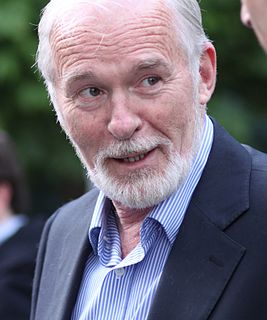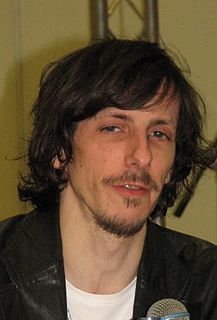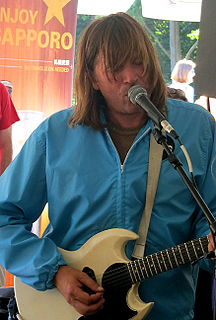A Quote by Rick Stein
I would quite like to do something on Ireland about the culture, James Joyce, Yeats, persuade Seamus Heaney to have a chat and do some cooking.
Related Quotes
I think the poetry that came out of Belfast, and especially the Queen's University set, in the 1970s and '80s - you know, Paul Muldoon and Seamus Heaney, Derek Mahon and Ciaran Carson - that was probably the finest body of work since the Gaelic renaissance, up there with the work of Yeats and Synge and Lady Gregory.
A friend came to visit James Joyce one day and found the great man sprawled across his writing desk in a posture of utter despair. James, what’s wrong?' the friend asked. 'Is it the work?' Joyce indicated assent without even raising his head to look at his friend. Of course it was the work; isn’t it always? How many words did you get today?' the friend pursued. Joyce (still in despair, still sprawled facedown on his desk): 'Seven.' Seven? But James… that’s good, at least for you.' Yes,' Joyce said, finally looking up. 'I suppose it is… but I don’t know what order they go in!
Insofar as I think about postmodernism at all, and it doesn't exactly keep me awake at nights, I think of it as something that happens to one, not a style one affects. We're postmoderns because we're not modernists. The modernist writers?Pound, Eliot, Joyce, Stevens, Yeats, Woolf, Williams?spoke with a kind of vatic authority: they were really the last of the Romantics, for whom authorship itself was like being a solitary prophet in the wasteland.
I meet with Satya [Nadella] what probably amounts to four or five times a year - either to brainstorm something or just as a shareholder, we'll sit down and chat. That's always quite helpful for me and hopefully him in terms of thinking things through. I still have a number of friends and colleagues who occasionally want to brainstorm or chat about something, and that's always fun.
The censors have always had a field day with James Joyce, specifically with 'Ulysses,' but also with his other writings. The conventional wisdom is that this is because of sexually explicit passages (and there certainly are those). I have always thought that what the critics hated and feared about Joyce is his cry for human freedom.
To live with the work and the letters of James Joyce was an enormous privilege and a daunting education. Yes, I came to admire Joyce even more because he never ceased working, those words and the transubstantiation of words obsessed him. He was a broken man at the end of his life, unaware that Ulysses would be the number one book of the twentieth century and, for that matter, the twenty-first.








































